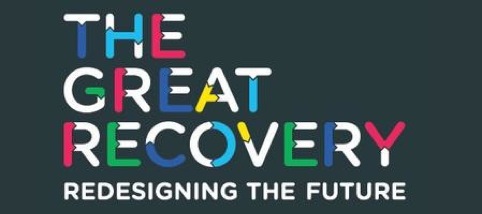The Great Recovery
The Royal Society of Arts has launched the Great Recovery programme, which aims to encourage designers to minimise waste from the products they create.

The initiative is being led by RSA design directors Sophie Thomas and Nat Hunter, and will play out through a series of workshops, as well as a £1.25 million Technology Strategy Board competition, which will fund feasibility studies into redesigning products.
Sophie Thomas says the inspiration for the Great Recovery came during a visit to a Dutch recycling plant, where she saw a recovery worker struggling to remove the compressor from the back of a fridge.
She says, ‘The way we design now is much more about off-the-shelf components coming together than thinking about how products should be designed as a whole.
‘Financially this can be more efficient, but in terms of material recovery it can make things much more difficult. You can end up with situations like TVs with six different screws in them, or Apple Macs being glued together.’
The aim of the Great Recovery, Thomas says, is to bring designers together with those in different parts of the product chain – marketers, chemists, recovery experts – to give everyone more of an insight into what is needed to improve efficiency.
This could be in terms of developing closed-loop systems, or improving longevity of products to reduce waste.
Thomas says, ‘In the workshops we will, for example, be bringing together a designer and a chemist, and putting a kettle in front of them to see what happens.
‘You don’t need boiling water to make tea, so is there a way of creating a kettle that keeps the water below boiling point to reduce energy use.’
https://www.youtube.com/watch?v=0ExzD-79aXw
Some of the workshops – which are taking place over the next six months, will be held in landfill sites and recycling plants, to provide first-hand and visceral evidence of the consequences of waste.
Thomas says, ‘This is about building new collaborations and spotting innovation gaps. We also want to set up a comprehensive circular network, so that if designers need help with a certain material or chemical, for example, they can get it.’
The Great Recovery project is also being supported by a TSB competition, which is funding up to 50 feasibility studies into the redesign of products, components and systems with the aim of ‘closing the loop’.
The deadline for registrations for the first round of the competition is 5 December, for more information, visit: www.innovateuk.org. For more information on The Great Recovery visit www.greatrecovery.org.uk.




The big problem is that too many products are engineered for ease of manufacture, not for servicing and repairing
Many companies, not designers, see this as their priority, servicing is not their problem, it’s someone elses
I remember hearing marketing people years ago advocationg built in obsolesence as a means of ensuring that companies have a continuous market. Now we are paying for that ideology
Oh my, Design Council at it again… late on the bandwagon – every product designer worth their slat are continually looking for cost reduction in manufacturing!
What we need to be re-designing is our infrastructure to anticipate flux in energy generation and coping with downgrading energy usage as the lights start to go out.
Start with alternative energy solutions and I might have a bit more respect for the Design Council!